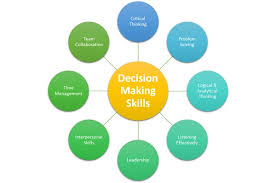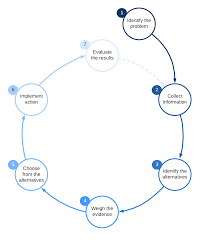The Impact of Emotional Decisions on Your Life
Emotions play a significant role in the decisions we make every day. Whether it’s choosing a career path, making financial choices, or deciding on personal relationships, our emotions can heavily influence the outcomes of our decisions.
When we make decisions based on emotions, we are often guided by our feelings rather than logic or reason. While emotions can provide valuable insights and intuition, they can also cloud our judgment and lead us to make choices that may not be in our best interest.
Emotional decisions can have both positive and negative consequences. On one hand, following your heart can lead to fulfilling experiences and meaningful connections. On the other hand, acting impulsively out of strong emotions like anger or fear can result in regrettable outcomes.
It is important to strike a balance between rationality and emotions when making decisions. By acknowledging and understanding your feelings while also considering the practical implications of your choices, you can make more informed and well-rounded decisions.
Remember that it’s okay to listen to your emotions, but it’s also essential to take a step back and evaluate the situation objectively before making a final decision. Reflecting on how your emotions are influencing your choices can help you avoid potential pitfalls and lead to better outcomes in the long run.
Ultimately, being aware of the impact of emotional decisions on your life is crucial for personal growth and success. By learning to harness the power of your emotions while maintaining a rational perspective, you can navigate life’s challenges with confidence and clarity.
Understanding Emotional Decision-Making: FAQs and Insights
- How do emotions influence decision-making?
- What are the pros and cons of making decisions based on emotions?
- How can I balance my emotions with rationality when making decisions?
- What are some common pitfalls of emotional decision-making?
- Can emotional intelligence help improve decision-making skills?
How do emotions influence decision-making?
Emotions play a crucial role in influencing decision-making by shaping our perceptions, preferences, and behaviors. When we experience strong emotions such as joy, fear, or anger, they can impact how we evaluate options and make choices. Emotions can provide valuable insights and guide us toward decisions that align with our values and desires. However, they can also lead to impulsive or irrational decisions if not properly managed. Understanding how emotions influence decision-making processes is essential for making informed choices that balance both emotional intuition and rational thinking.
What are the pros and cons of making decisions based on emotions?
Making decisions based on emotions can have both advantages and disadvantages. On the positive side, emotional decisions can lead to a deeper sense of fulfillment and authenticity, as they often align with our values and desires. Emotions can provide valuable insights and intuition that logic alone may not capture, leading to more creative and innovative solutions. However, relying solely on emotions can also have drawbacks. Emotional decisions may be impulsive and driven by temporary feelings, potentially leading to regrettable outcomes. Emotions can cloud judgment and bias our perceptions, making it challenging to see the bigger picture or consider all possible consequences. Striking a balance between emotions and rationality is essential to make well-informed decisions that benefit us in the long run.
How can I balance my emotions with rationality when making decisions?
Balancing emotions with rationality when making decisions is a common challenge many people face. One effective approach is to first acknowledge and understand your emotions, recognizing their influence on your decision-making process. By taking a step back and objectively evaluating the situation, you can gain clarity on the factors at play and consider the practical implications of your choices. It’s important to give weight to both your feelings and logical reasoning, allowing yourself to tap into intuition while also ensuring that your decisions are grounded in sound judgment. Finding this balance between emotions and rationality can lead to more informed and well-rounded decision-making, ultimately helping you navigate life’s complexities with greater confidence and effectiveness.
What are some common pitfalls of emotional decision-making?
Emotional decision-making can lead to several common pitfalls that individuals should be aware of. One major pitfall is acting impulsively without considering the long-term consequences of our choices. Emotions can cloud our judgment and cause us to overlook important factors that may impact the outcome of our decisions. Another pitfall is making decisions based on temporary feelings, such as anger or stress, which may not align with our values or goals in the long run. Additionally, emotional decisions can be influenced by biases and personal preferences, leading to subjective choices that may not be in our best interest. It is important to recognize these pitfalls and strive for a balance between emotions and rationality when making important decisions.
Can emotional intelligence help improve decision-making skills?
Emotional intelligence plays a crucial role in enhancing decision-making skills. By being aware of and understanding one’s emotions, individuals can better regulate their feelings and make more informed choices. Those with high emotional intelligence are adept at recognizing how emotions can influence their decision-making process and are better equipped to manage any biases or impulsive reactions that may arise. Developing emotional intelligence can lead to improved self-awareness, empathy, and interpersonal relationships, ultimately contributing to more effective and well-rounded decision-making abilities.




